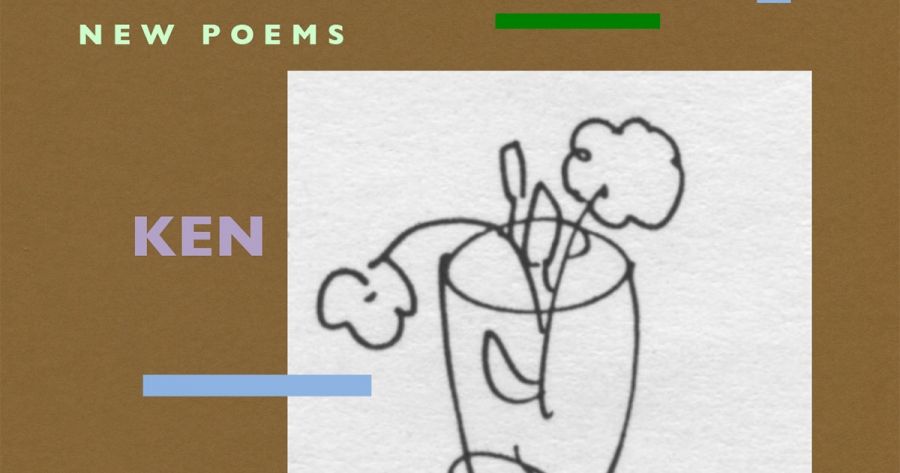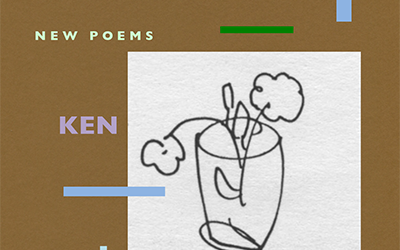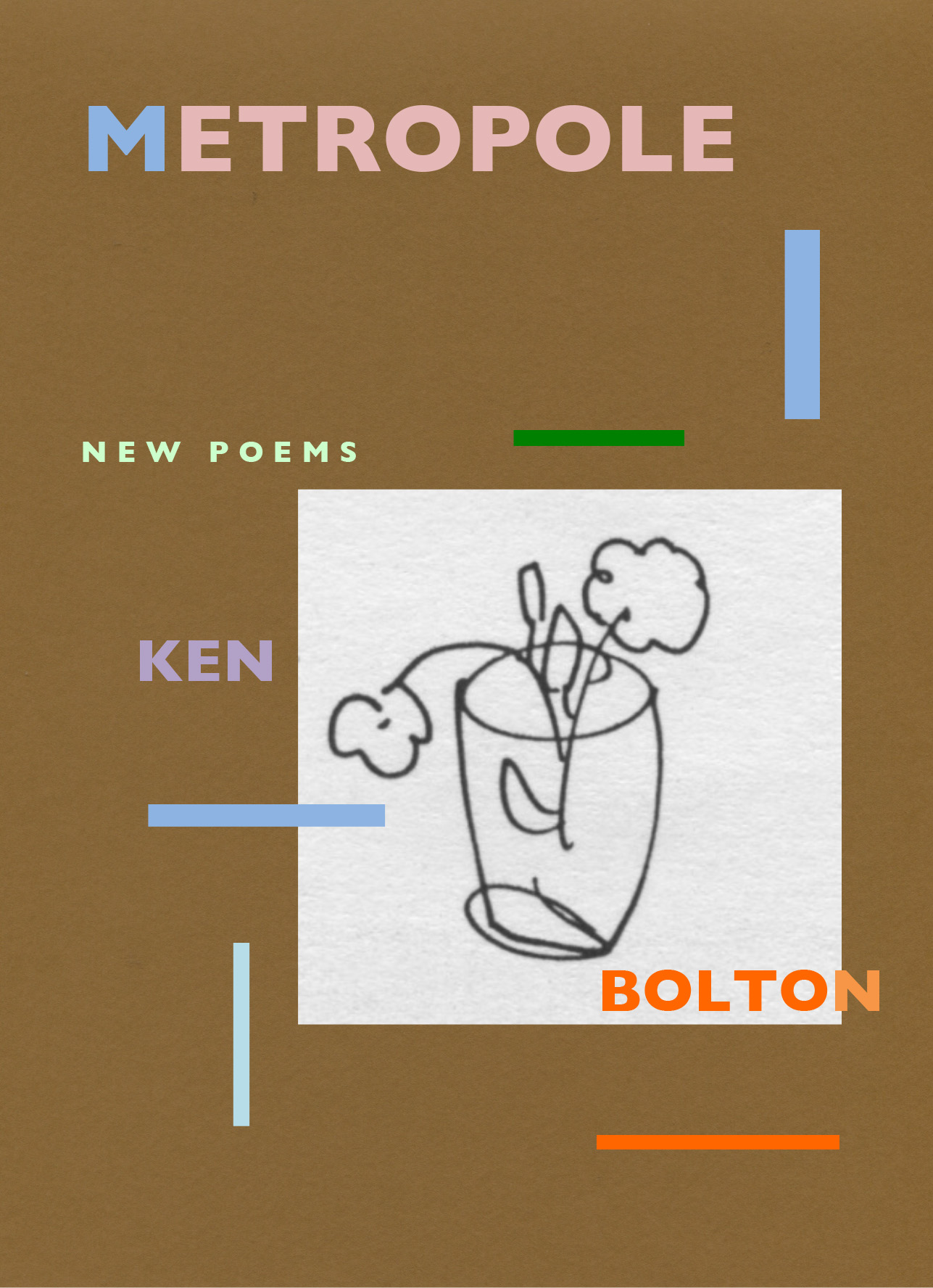
- Free Article: No
- Contents Category: Poetry
- Review Article: Yes
- Article Title: Pam, John, Rae, Ken
- Article Subtitle: Dissolving the wall between poetry and living
- Online Only: No
- Custom Highlight Text:
Ben Sando Ode’, the second poem in Ken Bolton’s new collection, Metropole, begins with an epigraph from Ted Berrigan: ‘My dream a drink / with Ira Hayes / we discuss the code of the west.’ The poem is pure Bolton: a jovial flâneur perambulates through both external space – Adelaide, where passers-by make ‘BIZARRE ATTEMPTS / AT NORMALCY’ – and an inner life brimming with peers and heroes, quotations, non sequiturs, art criticism, existential musings, and the hum of a poem being made. - Featured Image (400px * 250px):

- Alt Tag (Featured Image): Anders Villani reviews ‘Metropole: New poems’ by Ken Bolton
- Book 1 Title: Metropole
- Book 1 Subtitle: New poems
- Book 1 Biblio: Puncher & Wattmann, $27 pb, 155 pp
- Book 1 Cover Small (400 x 600):

- Book 1 Cover (800 x 1200):

Tim Wright, writing in Colloquy (no. 34, 2017), notes that Bolton’s poetry foregrounds ‘process’, or ‘the relation between experience and the moment of inscription’. Thought, perception, embodiment, speech, and writing resolve into one movement. What makes ‘Ben Sando Ode’ note-worthy is that Bolton has used the epigraph before, in poems dating back to the 1970s and as editor of the Magic Sam journal. This echo feels intentional, painterly; Bolton’s ‘moments of inscription’ are so often re-inscriptions. Few Australian poets have remained as consistent in subject and technique over so long a period.
The more recursive a poet’s style, the more shifts and departures startle. If to read Bolton is to encounter a speaker ‘seeing if I’ll / think things I haven’t thought before – or not quite / as I’ve thought them’ (‘Night Thoughts’), what accents that thought in Metropole is nostalgia and mortality. Two of the book’s best poems are elegies. ‘Kate’ meanders from a gathering in Marion Bay to a skewering of Robert Lowell – lyric poets sag under Bolton’s critical gaze, most amusingly Robert Adamson’s ‘will-to-swoon before fish’ (‘An Australian Afternoon – Faces at the Metropole’) – to the announcement that ‘Kate Jennings has died’. Bolton reminisces about meeting Jennings, the poet-novelist author of Moral Hazard (2002), before she left Australia for New York, the cultural ‘centre’ that birthed the New York School so integral to Bolton’s poetics. ‘Australian Afternoon’ uses a similar structure to ‘process’ the death of John Tranter. In both poems, Bolton elegises through critique, some of it harsh, particularly of Tranter: ‘Work that could seem at the same time “good” but not “interesting”.’ But careful engagement implies respect – and, for Jennings, jealousy: ‘Kate achieved things – and got out. / We were the grudging crowd.’ Portholes into Australian literary history, these poems depict a young Bolton appraising his own work next to that of luminaries.
If New York is one of Bolton’s artistic metropoles, the other is modernist Europe. ‘Unsuitable Attachment’ places a subject where Bolton has repeatedly placed his speakers, at a café table, caffeinated, observing. But this observer sits in Paris in 1914, brainstorming a piece of writing that will describe ‘a thing latent, about to gel’. From this cusp of late modernism, quick with war and aesthetic manifestos, Bolton segues to a speaker who can ‘just about recall / what 1986 felt like’. In ‘New Tunes’, Bolton imagines what Blaise Cendrars and other modernists ate for breakfast: ‘Cendrars has a hair- / of-the-dog for all I know / & three or four Gitanes / or Gauloises / & a sausage.’ Bolton longs to sit at that Parisian table; his homages to modernism reflect ‘the childish wish / to know what it felt like’ (‘Unsuitable Attachment’). He has been expressing this wish throughout his career in references to poetic peers (Pam Brown, John Forbes, Rae Desmond Jones) which suggest a homegrown creative ferment, a rebuff to the trope of the siloed artist. Poems can span twenty pages, and readers may find the discursive heft forbidding or dull. Bolton has always run this risk: ‘I am pushing it here,’ he writes in a poem from the 1990s, ‘ – all these / art references – / who will get them?’ Poems are not to ‘get’, though, but experience. We might mine Bolton’s erudition, particularly regarding modernist art, for knowledge. We might treat these names as imagery, sound, texture, depth, suggestion.
Throughout Metropole, the poet muses on his death: ‘How strange to be gone in a minute / … / I will be. One day’ (‘Ben Sando Ode’); ‘But must I die – must I die yet?’ (‘A Misty Day In Late July, 2020’); ‘am I going to end my / days critiquing Tranter?’ (‘An Australian Afternoon’). In a book that takes explicit care to tag any ‘lyrical’ moves with ironic self-criticism, the haunting ‘(“If You Take Requests”) – The Stars, A Cosmology’ stands out for its invocation of deceased ‘tutelary figures’. It reads almost as a prayer for these figures to ‘look down on’ and to ‘look after’ people whom Bolton loves. Yet mortality never lingers. Bolton treats it lightly, a flare in a mind too curious to let it, or much else, settle: ‘if Ben doesn’t show up soon,’ the speaker in ‘An Australian Afternoon’ worries, ‘this will become dangerously focused.’ There are poems to be written, tunes to whistle, grandchildren to pick up from school. There is a lover to be observed at the beach, the ‘[s]ort of thing / a bad painter would love / but great in real life’ (‘Cath & Pontoon at Horseshoe Bay’). Wright identifies in Bolton’s thinking the thesis ‘that theory ought to be coeval with poetry’. One of the triumphs of Metropole, and Bolton’s work at large, is to dissolve the wall between poetry and living. This dissolution is, of course, artifice – an effect on the page. Bolton has been honing this sleight of hand for half a century, as an early poem elucidates: ‘… the unpoetic things did not find my way into my poetry because / I had such unpoetic things to say. I had nothing to say, only poetry’ (‘Serial Treatise’).


Comments powered by CComment